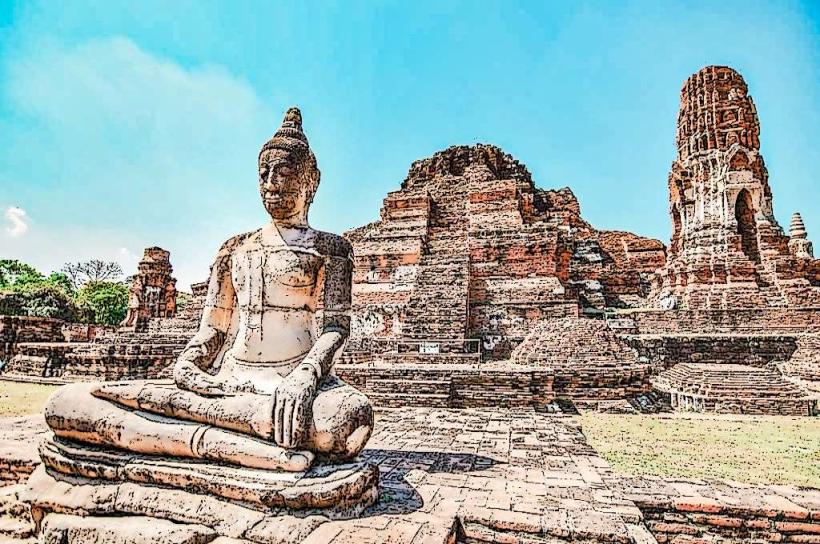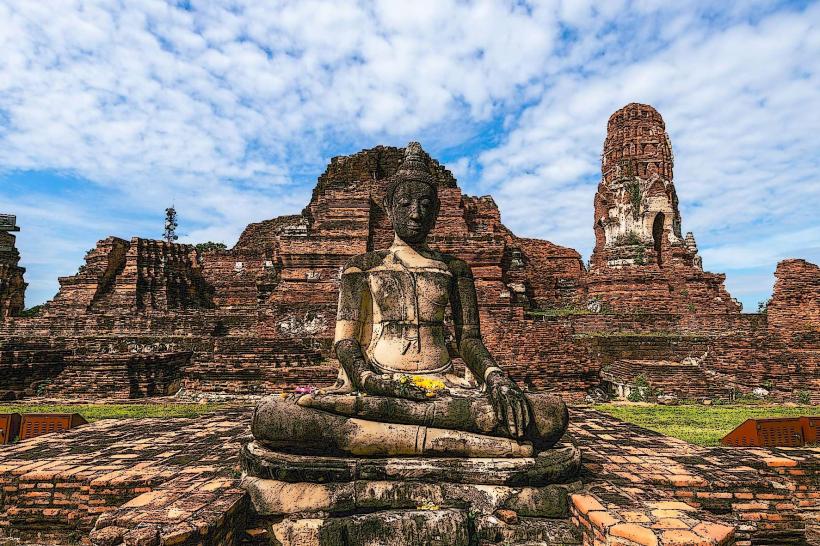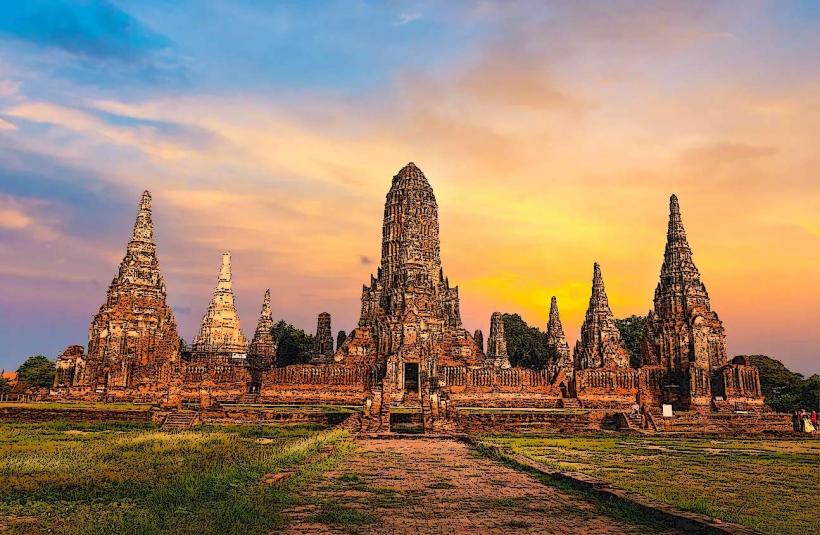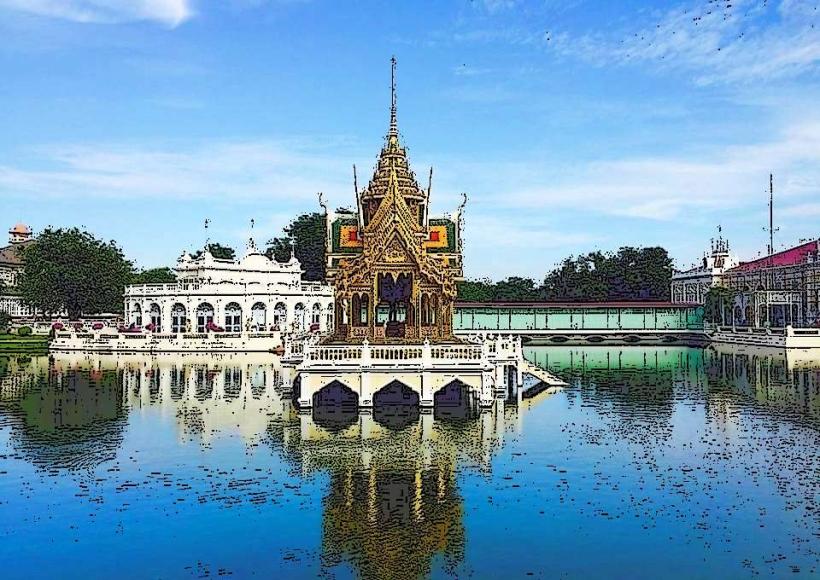Information
City: AyutthayaCountry: Thailand
Continent: Asia
Ayutthaya, Thailand, Asia
Ayutthaya, the capital of the Siamese Kingdom for 417 years (1350–1767), is a UNESCO World Heritage site and a critical cultural anchor for Thailand. In 2026, the city is navigating a complex balance between its massive heritage conservation requirements and the rapid expansion of national logistics and rail infrastructure.
Historical Timeline
1350: Founded by King Uthong on an island at the confluence of the Chao Phraya, Lop Buri, and Pa Sak rivers.
14th–18th Century: Served as a global trading port and the seat of 33 kings across five dynasties.
1767: Destroyed and looted by the Burmese army, leading the Siamese to move the capital south to Thonburi and eventually Bangkok.
1991: Designated a UNESCO World Heritage site.
2024–2026: Intensification of "Heritage Impact Assessments" (HIA) due to the proximity of the Thai-China High-Speed Rail route to the historic core.
Demographics & Population (2026)
The metro area population of Phra Nakhon Si Ayutthaya is estimated at 522,000.
Growth: Maintaining a steady annual increase of approximately 1.2%.
Economy: Transitioning from an industrial/agricultural base toward high-value cultural tourism and specialized craft heritage.
Urban Layout & Districts
Ayutthaya Island: The historic center containing the Ayutthaya Historical Park; strictly regulated to preserve the "ruin" skyline.
Phra Nakhon Si Ayutthaya District: The modern municipal area surrounding the island.
Bang Pa-In: Located south of the city; home to the Royal Summer Palace and a high concentration of industrial estates.
Wang Noi: A major logistical and distribution hub connecting Bangkok to the northern and northeastern regions.
Top Landmarks & Attractions
Wat Mahathat: Iconic for the sandstone Buddha head entwined in Bodhi tree roots.
Wat Phra Si Sanphet: The holiest temple of the old capital, recognizable by its three large, aligned chedis.
Wat Chaiwatthanaram: A stunning Khmer-style riverside temple; particularly famous for its sunset views and nighttime illumination.
Wat Yai Chai Mongkhon: Known for its massive bell-shaped chedi and rows of saffron-robed Buddha statues.
Wat Lokaya Sutha: Home to a 42-meter-long white reclining Buddha.
Bang Pa-In Royal Palace: An eclectic mix of Thai, Chinese, and European architecture.
Transportation & Infrastructure (2026)
High-Speed Rail: Phase 1 (Bangkok–Nakhon Ratchasima) is in active development. As of early 2026, debates continue regarding the Ayutthaya station’s impact on the World Heritage site's visual integrity.
M9 Expressway: The Thai Cabinet recently backed the extension of the M9 Motorway from Nonthaburi to Ayutthaya to alleviate heavy truck traffic on Phahonyothin Road.
Local Tenders: In January 2026, the government opened electronic bidding for road rehabilitation activities specifically within the World Heritage site to improve tourist access while maintaining heritage standards.
Red Line Extension: Plans are active to extend the SRT Red Line commuter rail from Rangsit to Ayutthaya.
Current Status (January 21, 2026)
Weather: A cold surge from China is currently sweeping through the region. Temperatures have dropped by 1–3°C, with cool mornings and fog. Today's high is 31°C, with a low of 22°C.
Air Quality: The AQI is currently 105 (Poor/Unhealthy for Sensitive Groups). PM2.5 levels are recorded at 37–52 µg/m³. Masks are recommended for outdoor exploration today.
Security/News: Local authorities recently confirmed a suicide at a historical site (Jan 20), leading to increased patrol presence around major ruins.
Events: The Bang Sai Folk Arts & Crafts Fair is traditionally held throughout January, showcasing the region's royal-sponsored handicraft heritage.
Local Cost Index (THB)
Ayutthaya Boat Noodles: ฿20 – ฿50 (per small bowl)
Giant River Prawn: ฿800 – ฿1,800 (per kg)
Day Tour Tuk-Tuk (on island): ฿200 – ฿300 per hour
Historical Park Entry: ฿50 per major temple (for foreigners) or ฿220 for a multi-temple pass.
Facts & Legends
A verified historical oddity: Ayutthaya was once one of the most populous cities in the world, with an estimated population of 1 million by the year 1700. A local legend concerns the Tears of the Buddha at Wat Phanan Choeng; it is said that the massive 19-meter-tall seated Buddha image shed real tears in 1767 just before the city fell to the Burmese, a story still cited by locals as a divine omen of the kingdom's temporary end.






